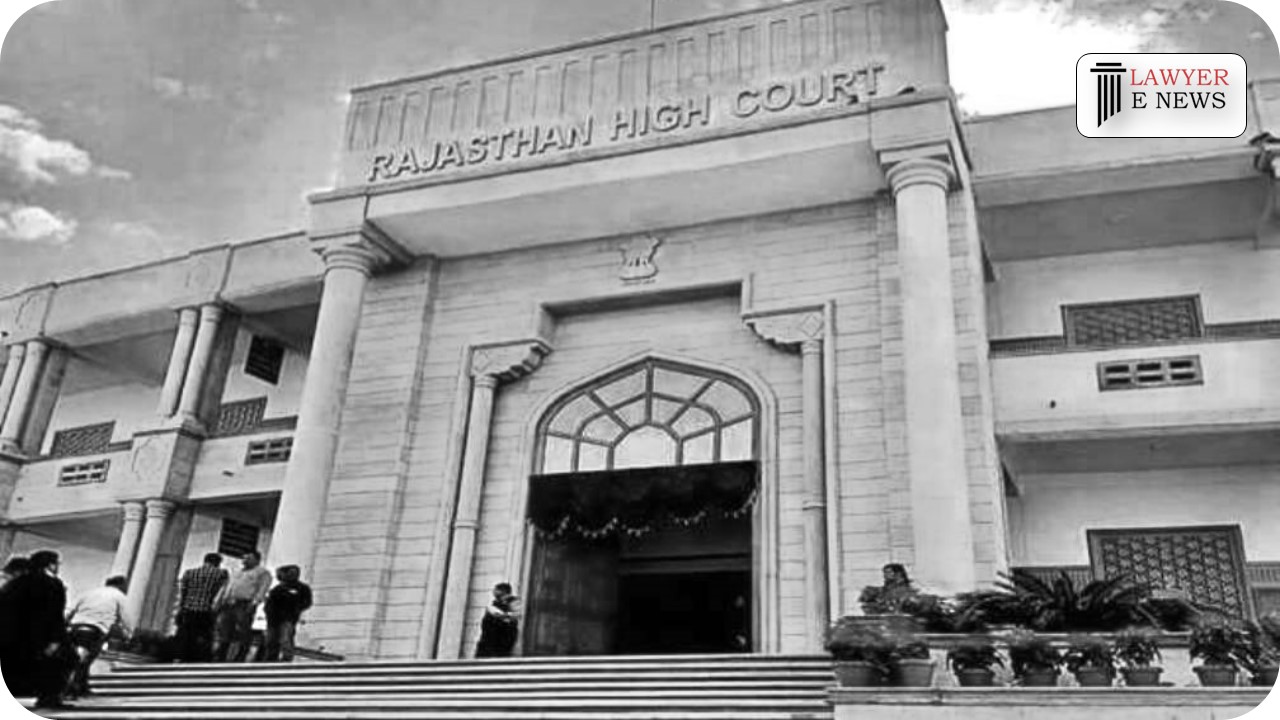-
by sayum
19 February 2026 7:31 AM



In a significant development, the High Court of Judicature for Rajasthan, Bench at Jaipur, quashed an FIR in a POCSO case, ensuring the protection of the matrimonial life of the petitioner and the victim. The order, passed by Hon’ble Mr. Justice Birendra Kumar on 31st May 2023, emphasized the consensual nature of the relationship between the parties involved and took into account their marital status and the existence of a child. The court held that the continuation of criminal proceedings would be an abuse of the legal process.
The case, bearing FIR No. 129/2021, was registered at Police Station Maangrol, Baran, and initially invoked Section 363 of the Indian Penal Code (IPC). However, cognizance was taken under various sections, including Sections 366, 376, 376(2)(n), Section 5(1)(j)(ii), and Section 6 of the POCSO Act.
The court took note of the victim’s statement, recorded under Section 164 of the Criminal Procedure Code (Cr.P.C.), wherein she stated that she willingly left her house with the petitioner, whom she loved, to get married. The victim further affirmed that they solemnized their marriage at a temple and subsequently established a physical relationship with mutual consent. The petitioner’s counsel highlighted the fact that the couple had been blessed with a child.
Drawing attention to a precedent in a similar case, the petitioner’s counsel argued that the FIR should be quashed to prevent an abuse of the legal process and to safeguard the matrimonial life of the parties involved. The bench referred to the case of Tarun Vaishnav Vs. State of Rajasthan & Anr. (2022 SCC OnLine Raj 2237), where the High Court had previously quashed an FIR in comparable circumstances. Although the said order was challenged in the Supreme Court, the Leave to Appeal was refused.
Considering the absence of any allegation of forceful kidnapping by the victim and the consensual nature of the physical relationship, the court concluded that the continuation of the criminal proceedings would amount to an abuse of the legal process. Additionally, the court acknowledged the existing marriage between the petitioner and the victim, as well as the fact that they have a child together.
Consequently, the High Court quashed the FIR and all the criminal proceedings arising from it, thereby providing respite to the petitioner and the victim. This judgment showcases the court’s commitment to ensuring justice while taking into account the unique circumstances of each case and upholding the principles of fairness and equity.
Date of Decision: 31/05/2023
Ankit Jatav vs State Of Rajasthan
